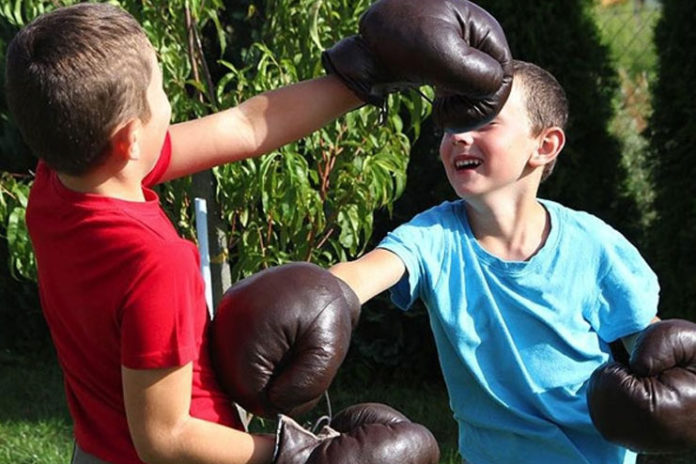Your son has left his breakfast bowl on the table again, even after being asked nicely (OK, sometimes angrily) for the umpteenth time to take it to the sink….The kids have been at each others’ throats all day, and time-outs aren’t working….Your daughter’s room is a mess—why can’t she at least remember to make her bed?
In this post-spanking, post-yelling era, the rules of discipline have changed, but kids remain the same. We need to know how to discipline a child without losing our temper while still making an impact. How about trying some positive discipline—attention-getting, funny, sometimes wacky, stunts—to make the lesson stick in your children’s minds?
We asked parents to tell us what off-the-wall, or just plain memorable, disciplining methods they have used. What we found is that parents know how to get their kids’ attention in creative new ways. They know that the punishment doesn’t have to fit the crime—it just has to be a deterrent.
Take It Away
- A couple of parents shared stories about beds repeatedly not being made. “You must not want your sheets and blankets,” concluded Laura Rencher, mother of three, to her daughter. The next day the bedding disappeared. The daughter had to find a sleeping bag and use it until, penitent, she asked for her bedding back. The bed was made consistently from then on.
- Amy Harding’s six children kept leaving their new robes lying around. They were told that the next time it happened, the robes would be dropped off at the thrift store. Sure enough, Harding was soon gathering up the robes to donate them. But the kids were so upset that she allowed them to buy the robes back for what they would pay at the thrift store. “They each saved up $5.00 to buy their robes back and have kept very good care of them ever since.”
- A father couldn’t get his kids to turn off lights when they left a room. This creative dad removed every bulb from every light fixture in the house (though we have a feeling his wife put her foot down when it came to the kitchen). Each child was then given one light bulb to carry around and screw in when needed. Problem solved!
Self-Inflicted Physical Punishments
- Positive parenting aims to find discipline that is never cruel, just uncomfortable enough to get kids’ attention. In our home, this translates into push-ups. Teasing will generally earn them 20 push-ups. And if they don’t get right to it, the number goes up. You do have to keep an eye on them. We’ve caught them lying on their bellies, grunting out, “Nine…ten…eleven…”
- Our friends have their children do squats instead of push-ups. Another family uses the motorcycle position—back against the wall with legs bent at a 90-degree angle and arms straight out. These kinds of disciplines should not be overused, however, as kids with tired muscles who are forced to use them to exhaustion may become resentful and look for other ways to act out.
Turning Fights into Laughs
- Growing up in a family of 10 children, I got used to fights with my sisters. My parents did too. Many disputes were left to work themselves out, but when fights got a little too physical, Mom or Dad would pull out the boxing gloves. These were adult-sized—huge and well padded. The size alone made us giggle a little as we pulled them on. The combatants would then square off—and have a ball.
- Other families use the window washing technique: The fighters are placed on opposite sides of a sliding glass door or window and told to clean it. They can’t help making faces at each other and soon begin to laugh.
- Another trick we heard is to have kids hug each other for several minutes. It’s hard to stay mad at someone who’s hugging you.
- One mom set up a no-fight zone. She hung pictures of Jesus throughout the house and told her kids, “No fighting in front of Jesus.” Since every room except the bathroom held a picture of Jesus, they could only fight outside or in the bathroom. This kept the fighting down measurably.
- So, how do you discipline a child who leaves his dirty breakfast bowl out day after day? Laura Rencher waited until dinner to make her point with her son. When he sat down for dinner, his bowl was still there, the leftover oatmeal was cold and gray at the bottom. Rencher spooned some casserole into the bowl. She didn’t make him eat it; he didn’t need to. He got the point.









